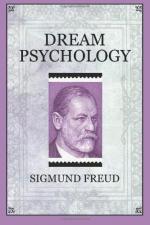This persistent wish to sleep on the part of the foreconscious in general facilitates the formation of the dream. Let us refer to the dream of the father who, by the gleam of light from the death chamber, was brought to the conclusion that the body has been set on fire. We have shown that one of the psychic forces decisive in causing the father to form this conclusion, instead of being awakened by the gleam of light, was the wish to prolong the life of the child seen in the dream by one moment. Other wishes proceeding from the repression probably escape us, because we are unable to analyze this dream. But as a second motive power of the dream we may mention the father’s desire to sleep, for, like the life of the child, the sleep of the father is prolonged for a moment by the dream. The underlying motive is: “Let the dream go on, otherwise I must wake up.” As in this dream so also in all other dreams, the wish to sleep lends its support to the unconscious wish. We reported dreams which were apparently dreams of convenience. But, properly speaking, all dreams may claim this designation. The efficacy of the wish to continue to sleep is the most easily recognized in the waking dreams, which so transform the objective sensory stimulus as to render it compatible with the continuance of sleep; they interweave this stimulus with the dream in order to rob it of any claims it might make as a warning to the outer world. But this wish to continue to sleep must also participate in the formation of all other dreams which may disturb the sleeping state from within only. “Now, then, sleep on; why, it’s but a dream”; this is in many cases the suggestion of the Forec. to consciousness when the dream goes too far; and this also describes in a general way the attitude of our dominating psychic activity toward dreaming, though the thought remains tacit. I must draw the conclusion that throughout our entire sleeping state we are just as certain that we are dreaming as we are certain that we are sleeping. We are compelled to disregard the objection urged against this conclusion that our consciousness is never directed to a knowledge of the former, and that it is directed




